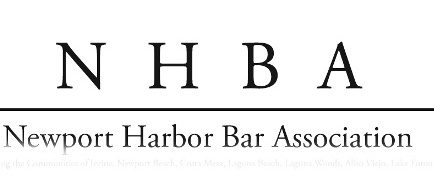

Gain a Trusted Community in the Legal World
Become a member of our board of defense lawyers
Newport Harbor Bar Association puts furthering education as a top priority. Members of our association get full access to our Minimum Continuing Legal Education (MCLE) classes and various other resources. If you manage a local business and would like to sponsor our nonprofit organization, we'd love to bring you on board.
Make sure you get the legal credits you need to continue to practice in the state of California. We're currently accepting applications for both members and sponsors.

Donate to Help Newport Harbor Bar Association
We're currently accepting applications for sponsors
Reap the benefits of becoming a bar association member at Newport Harbor Bar Association
Thinking about joining our bar association? We're here to convince you. Just a few benefits of joining our nonprofit association include:
Joining a welcoming community of attorneys
Gaining access to MCLE courses and other events
Learning about the latest updates to California law




